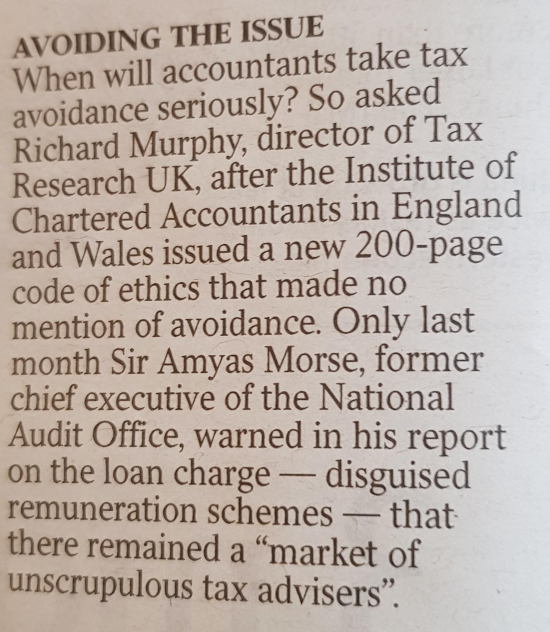This is in The Times this morning: This is the article to which it refers.
This is the article to which it refers.
Thanks for reading this post.
You can share this post on social media of your choice by clicking these icons:
You can subscribe to this blog's daily email here.
And if you would like to support this blog you can, here:



I cannot but help but wonder if the avoidance of tax that has led to the stories of the massive inflation that engulfed the Weimar Republic and, more recently ,Zimbabwe was about too much money chasing too few goods. A government issues a certain amount of money, through spending, in the expectation that much is returned to them through taxation to avoid inflation with the difference being retained by the public at large This ‘excess’ has been captured by tax havens etc which has resulted in the general public, having seen an overall reduction in their living standards, but an increase in cash terms within the public sector, that they have therefore been given plausibility to the lie that ‘increased’ public expenditure is not to the public good
I think that’s simplistic but also not wholly amiss
The issue is what is acceptable avoidance or is all avoidance unacceptable? The courts/legislation have all but abolished the schemes. Sticking money in a cash box and not declaring the income has and always will be evasion. There are penalties for assisting with evasion. There is no ethical issue with legitimate avoidance ie non schemes butvuding the legislation as intended.